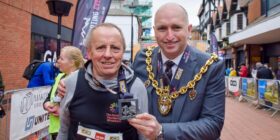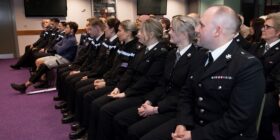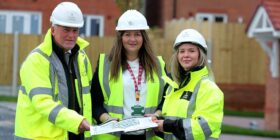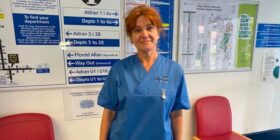A view from Mark Isherwood – Welsh Conservative North Wales Member of the Senedd
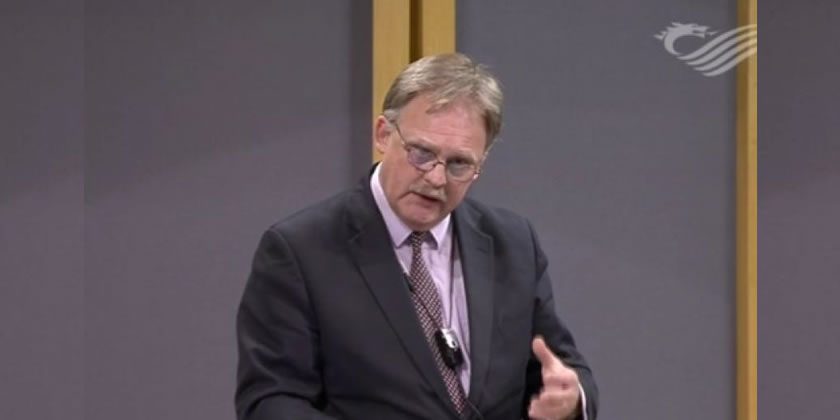
Wrexham.com has invited the four North Wales Members of the Senedd to write a monthly column with updates on their work. You can find their updates – along with contributions from the Wrexham and Clwyd South MPs and MSs – here.
In his monthly column for Wrexham.com, Welsh Conservative MS Mark Isherwood writes:
Having taken part in the ‘Equal Power Equal Voice’ (EPEV) cross-equalities mentoring programme to increase diversity of representation in public and political life in Wales, I sponsored and spoke at last month’s ‘Equal Power Equal Voice Event 24’ in the Senedd/Welsh Parliament, highlighting the underrepresentation of disabled people in politics.
Equal Power Equal Voice (EPEV) is a partnership between Women’s Equality Network (WEN) Wales, Stonewall Cymru, Disability Wales, and Ethnic Minorities & Youth Support Team (EYST) Wales.
A core principle of representative democracy is that all sections of the public have equal rights and opportunities to participate in political decision-making, both as citizens and as representatives.
Following the 2019 UK General Election, 66 or 10% of Members of the House of Commons were from minority ethnic backgrounds, compared with just four in 1987.
Six or 4.5% of the Scottish Parliament’s 129 members and three or 5% of the 60 Members of the Welsh Parliament are from minority ethnic backgrounds, including the first woman of colour elected since the start of devolution. None of the 90 Members of the Northern Ireland Assembly were recorded as being from a minority ethnic group.
Disabled people, who make up around 1 in 5 of the UK population, are thought to be under-represented in politics at different levels of government, both across the UK and internationally.
The UK Government’s 2021 ‘Barriers to elected office for disabled people’ Report states that the number of disabled people in politics across all levels of Government ‘are almost always below 1 in 5’, confirming that disabled people are underrepresented.
The report concludes that ‘Disabled people face a number of barriers when participating in party politics, including venue accessibility, lack of interpretation, inaccessible formatting of materials, lack of facilities, and cultural barriers – including a lack of awareness, knowledge and interest on the part of some local parties to make politics more accessible for disabled people’.
When I entered front line politics in 2003, I was personally dependent on hearing aids.
Fortunately, the then Assembly was very supportive and has always provided me with the equipment I need to follow proceedings in the Chamber and Committee. However, I had to persuade the Assembly Commission – our Parliamentary Service – to extend this to Cross-Party Group and other meetings held on the Parliamentary Estate, and although the Welsh Parliament prides itself on being disability accessible, they have often had to be reminded that barriers to disability access exist or have been designed in because of an apparent failure to involve lived experience. And the Senedd has still not had a Member who is a wheelchair user in its almost 25 year existence.
It is not just in public life that disabled people are facing these barriers. I hear almost daily from disabled people, communities and carers who are having to fight for the support and services they need to enable them to lead an independent life. Despite the existing rights that do exist, we must go further.
For example, I have recently called for the Welsh Government to implement personal wheelchair budgets in Wales, as in England, and I have long supported proposals by Disability Wales for the Welsh Government to include the United Nations Convention on the Rights of Disabled People (UNCRPD) into Welsh law.
I also regularly highlight the need for Disability training to be more than just raising awareness, the need for parents to have their voices heard and the need for legislation to be adhered to by Public Bodies.
Since becoming a Member of the Senedd, I have become the Patron, or equivalent, for a number of Disability Charities. I also work very closely with the sector as the voluntary, elected Chair of several Cross-Party Groups, including those on Disability, Autism, Deaf Issues, and Hospices and Palliative Care.
As I have repeatedly said during this time, people are not disabled by their impairments, but by the barriers to access and inclusion which society places in their way. It is therefore vitally important that we work with disabled people to remove these, seeing the world through their eyes, giving them the voice, choice, control and independence they seek and deserve.
Spotted something? Got a story? Email [email protected]



